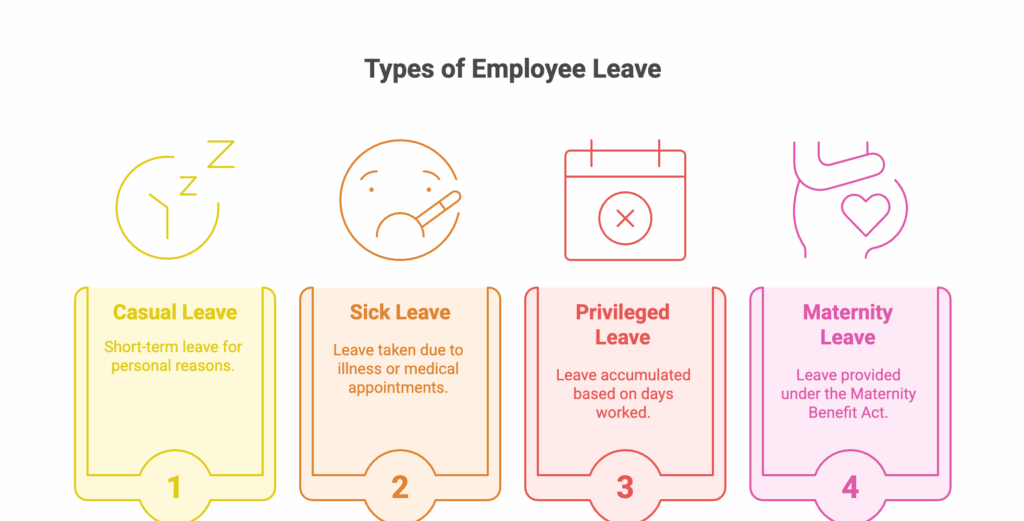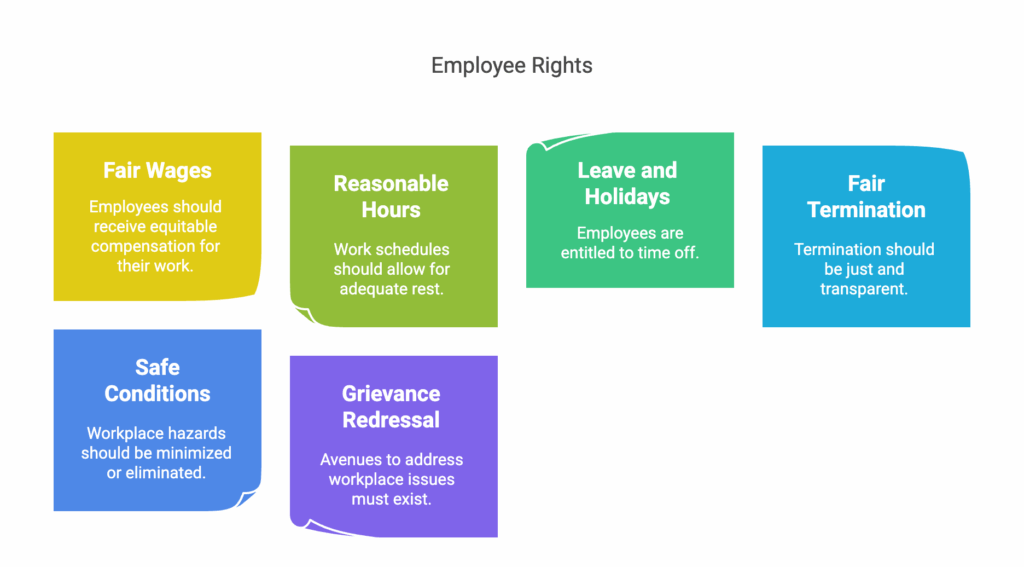Now Reading: Labour Laws in India: A Simple Guide to Employee Rights
-
01
Labour Laws in India: A Simple Guide to Employee Rights

Labour Laws in India: A Simple Guide to Employee Rights
Understanding your rights as an employee in India can feel overwhelming. This guide breaks down the key Labour Laws straightforwardly, so you know what to expect from your employer and how to protect yourself.
Understanding Labour Laws in India
Labour Laws in India are a collection of regulations designed to protect the interests of workers. They cover everything from wages and working hours to safety and termination procedures. Think of them as the rulebook for the employer-employee relationship, aiming to create a fair and just working environment. The Indian Constitution also provides a basis for these laws, ensuring social justice and economic equality.
Recent amendments, like consolidating various labour laws into four Labour Codes (on Wages, Social Security, Industrial Relations, and Occupational Safety, Health and Working Conditions), are meant to simplify and modernise the legislation. However, their full implementation is still underway. These changes reflect the needs of a changing workforce, especially with the rise of the gig economy.
Key Acts Protecting Employees in India
Several “Acts” form the backbone of employee protection. Here are some of the most crucial ones:
- The Minimum Wages Act, 1948, sets the minimum wage payable to employees in different scheduled employments. States also have their versions, which may offer higher minimum wages.
- The Payment of Wages Act, 1936: Ensures wages are paid on time and without unauthorised deductions.
- Factories Act, 1948: Deals with the health, safety, welfare, and working conditions in factories.
- The Employees’ Provident Funds and Miscellaneous Provisions Act, 1952: Provides for a contributory provident fund, a pension scheme, and an insurance scheme for employees.
- The Maternity Benefit Act, 1961: Protects the employment of women during the time of their maternity and entitles them to complete paid absence from work.
- The Industrial Disputes Act, 1947: provides mechanisms for resolving disputes between employers and employees.
These are just a few examples. Many other laws exist, depending on the specific industry and type of employment.
Wages and Compensation: Employee Rights Under Labour Laws
You have the right to receive fair and timely wages. The Minimum Wages Act, 1948, ensures that employers pay at least the minimum wage set by the government for your job category. This rate is revised periodically to account for inflation and the cost of living.
Beyond the base wage, you may also be entitled to overtime pay. According to the Factories Act, employees working beyond standard hours (typically 9 hours a day or 48 hours a week) are entitled to overtime wages at double the ordinary pay rate.
Example: If your regular wage is ₹200 per hour, your overtime rate should be ₹400 per hour.
The Payment of Wages Act also mandates that wages are paid promptly, typically before the 7th or 10th of the month, depending on the number of employees. Dedications from your salary are only permitted under specific circumstances, such as for statutory deductions like income tax, contributions to the provident fund, or penalties imposed for particular reasons detailed in the law.
Working Hours, Leave, and Holidays: Employee Rights Explained
Labour Laws regulate working hours to prevent exploitation and protect employee well-being. The standard working hours are usually 9 hours a day and 48 hours a week, as outlined in the Factories Act and other relevant state-specific shops and establishments acts.
You are also entitled to various types of leave, including:
The number of leave days varies depending on the company policy and applicable state laws. For example, the Karnataka Shops and Commercial Establishments Act annually mandates 12 days of casual or sick leave.
In addition to leave, you are also entitled to paid holidays on national and festival holidays as declared by the government.
Termination and Grievance Redressal: Labour Laws and Employee Protection
Labour Laws provide a framework for fair termination practices. An employer cannot terminate your employment without a valid reason and proper notice. The Industrial Disputes Act, 1947, outlines procedures for retrenchment (termination due to economic reasons) and dismissal (termination for misconduct).
You can challenge a termination if you believe it was unfair or illegal. You can approach the Labour Court or the Industrial Tribunal to seek redress.
Many companies also have internal grievance redressal mechanisms to address employee complaints. These mechanisms should provide a fair and impartial process for resolving disputes.
Health, Safety, and Welfare: Ensuring Employee Rights in India
The Factories Act, 1948, strongly emphasises ensuring a safe and healthy working environment. Employers are responsible for providing:
- Adequate ventilation and temperature control.
- Safe machinery and equipment.
- Proper lighting.
- Clean drinking water and sanitation facilities.
- First-aid facilities.
They are also required to take measures to prevent accidents and occupational diseases. Employees have the right to report unsafe working conditions without fear of retaliation.
Labour Laws India: A Summary of Essential Employee Rights
Labour Laws in India exist to protect your rights as an employee.
Key takeaways include:
- Fair Wages: Entitlement to minimum wages and timely payment.
- Reasonable Working Hours: Regulated working hours and overtime pay.
- Leave and Holidays: Access to various types of leave and paid holidays.
- Fair Termination Practices: Protection against unfair termination.
- Safe Working Conditions: A safe and healthy work environment.
- Grievance Redressal: Mechanisms for resolving workplace disputes.
Staying informed about these rights will help you ensure a fair and fulfilling employment experience. Consult a legal professional for specific advice tailored to your situation.












